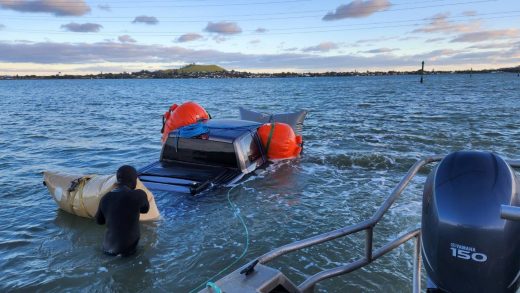
“Our reputation has been soiled,” says an organiser of the Waikato Cherry Tree Festival who claims Stuff and its former reporter defamed them in coverage about their event’s 11th hour cancellation.
But the court also heard Paul Oulton failed to provide all the information needed for resource consent and that he told the reporter he didn’t know what his back-up plan was, despite still selling tickets to the event.
Stuff Ltd and its former reporter Gary Farrow are on trial for defamation in Hamilton High Court before Justice David Johnstone.
It’s related to six stories published in the Waikato Times and on Stuff’s website about Anne Cao and Paul Oulton’s spring Cherry Blossom Festival near Waikato’s Tamahere.
Farrow wrote five of them, as well as a radio broadcast after ceasing employment with Stuff.
Cao and Oulton’s lawyer Kalev Crossland said the stories falsely painted them as disorganised and incompetent and wrongly depicted them as law-breakers, or as people who don’t follow the rules.
They also said the stories wrongly alleged they were dishonest and fraudulent.
Oulton read a list of Facebook comments to the court that called the couple crooks, fraudulent, scammers and greedy.
Tom Lee/Stuff
Anne Cao and Paul Oulton ran the Cherry Tree Festival at their home near Waikato’s Tamahere.
He said those people referred back to Stuff’s coverage and that “if they had not read the story they would not have had that view of us”.
Oulton said someone also shouted at him at his local supermarket and, amongst other things, called him a liar.
The 2019 festival was to be 10 days, with a total of 12,000 visitors expected, which was much larger than previous years. This meant resource consent was required, when it wasn’t previously.
When talking about the decision to cancel the event, Oulton got emotional.
He was asked why they didn’t go ahead with plan b, because the abatement notice only warned of prosecution if the rules were breached.
The back-up plan was to instead run under the temporary event provisions which allowed for 1000 people a day, for three days.
He said when running a big event it was hard to stay on top of every element.
Christel Yardley/Stuff
Stuff Ltd and its former reporter Gary Farrow are on trial for defamation in Hamilton High Court before Justice David Johnston.
“We thought we were at risk, and my wife in particular was very stressed about it. And I love my wife.”
He said Farrow’s reporting was incorrect, because the festival was cancelled after the abatement notice and not because of the lack of resource consent.
He also said consent wasn’t refused, time just ran out.
It was also published that Oulton and Cao kept half of the money, which he said was not true.
“People were totally misled.”
In cross-examination, Stuff lawyer Robert Stewart put to Oulton that the alleged reputational damage was a result of his own actions – particularly his failure to obtain resource consent.
“It’s wrong to characterise it as our failure,” Oulton said.
He told the court it was the council’s fault.
TOM LEE/STUFF/Waikato Times
The cherry tree’s at Anne Cao and Paul Oulton’s English manor.
Then, Stewart said there was the decision to cancel on the eve of the festival.
Again, Oulton blamed the council for issuing the “unnecessary” abatement notice.
Oulton maintained he had given the council all the information needed to process the consent application, despite emails from the council that said more was outstanding.
Stewart led Oulton through numerous emails back and forth with the Waikato District Council.
The emails asked Oulton for clarification and more information on multiple occasions.
At one point, a council staff member asked Oulton to stick to a plan. She said every time he changed his mind she had to reassess the effects of their application.
Oulton had also emailed a document full of letters of support to the Waikato District mayor.
The mayor responded saying Oulton did not need letters of support, he needed to listen to what council staff had been telling him he needed to do.
There was lots of discussion, advice, and information provided over the emails, but Oulton was eventually told consent was unlikely to be processed in time.
Tom Lee/Stuff
The Waikato Cherry Tree Festival was first held in 2017.
It was decided the application needed to be publicly notified due to traffic concerns, which Oulton said in court he believed did not exist.
That would take 20 working days and there was not enough time before the event’s start.
The pair were formally informed of this decision in a letter on September 17, 2019.
Oulton told Stewart he had known since July of that year that the application relied on being non-notified, otherwise there wouldn’t be enough time.
But he said they always had plan b and this was why they continued to sell tickets until September 19 – the day the abatement notice was received.
But in an interview with Farrow less than a week before the event, Oulton was recorded saying he did not know what they would do if resource consent was not granted.
The trial continues on Monday.


